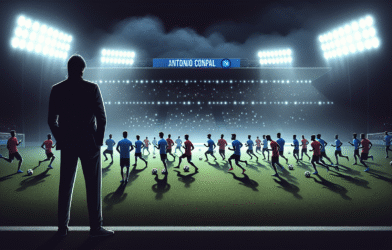Subtotal $0.00
Background and context
Israel and the broader political climate affecting football
UEFA ban decision looms as a focal point in football governance. In recent weeks, the Israel-Palestine crisis has touched the sport in ways that test affinities and sanctions. A FIFA vice president, Victor Montagliani, told Sky News that the decision on whether Israeli teams should face a ban should rest with European football’s governing body, not the world federation. He stressed that the issue falls within UEFA’s jurisdiction, first and foremost, signaling continental leadership on sanctions involving clubs from member associations during politically charged moments. This framing places UEFA in the driver’s seat for immediate responses while FIFA contemplates its broader role. As the tension spills into European competitions, the question of a UEFA ban decision becomes less about symbolism and more about practical governance on the field. For readers, the topic is not merely legal; it shapes who can compete, who sanctions, and how clubs engage fans across borders.
Israel’s status in football has historically been a point of contention but not a routine basis for punishment. The current discourse shifts the lens toward how regional bodies navigate complex geopolitical realities. The focus keyword, UEFA ban decision, anchors this debate by reminding readers that sanctions reverberate beyond calendars and rosters, reaching into sponsorship, travel, and the loyalties of supporters. As observers digest Montagliani’s comments, they see a potential acceleration of decisions through the bloc most closely connected to the teams involved. The moment invites scrutiny of how global standards are maintained when regional authorities act first. Sky News coverage frames the dialogue around who should lead on such sanctions and why.
The role of clubs and member associations in sanctions
Clubs operate within a mosaic of rules set by their regional confederations. When political tensions intensify, member associations are often the first to assess eligibility, disciplinary actions, and sanctions. The current debate highlights a shift toward empowering UEFA to decide on sanctions that affect Israeli clubs in European competitions. This is not merely a procedural choice; it affects eligibility, travel, match integrity, and sponsorship deals. The governance framework allows regional bodies to respond quickly to crisis scenarios while seeking alignment with global standards. Analysts note that such alignment is essential to maintain consistent rules across borders, even when regional circumstances vary. UEFA has long maintained that regional sovereignty matters in scheduling, discipline, and competition access, particularly in conflict-tinged environments.
For fans and stakeholders, the question becomes how much sovereignty should rest with continental bodies during volatile times. The debate also touches on how clubs navigate cross-border competitions, where travel and security concerns intersect with sporting regulations. The emphasis on region-led action underscores the idea that sanctions can be timely and targeted when the people closest to the teams are in charge. This section sets the stage for understanding why the UEFA ban decision could emerge from a continental decision rather than a global one, and what that implies for players and fans alike.
FIFA vs UEFA jurisdiction
Why Montagliani defers to UEFA
FIFA’s leadership often emphasizes global governance, yet Montagliani’s remarks place a premium on UEFA’s immediate relevance. He asserted that the issue falls within UEFA’s jurisdiction, “first and foremost,” suggesting that sanctions involving Israeli clubs should be addressed by the confederation closest to the clubs involved. The logic is practical: regional bodies understand local dynamics, security considerations, and competitive implications better than a global body drawn from many different contexts. This stance does not erase FIFA’s role; it clarifies how decisions might be accelerated when regional authorities take the lead on club eligibility and sanctions in European competitions. The focus on UEFA ban decision reflects a governance model that values regional specificity alongside global oversight. FIFA officials have historically supported consultation with regional confederations in sensitive cases, and Montagliani’s comments reaffirm that approach in a nuanced crisis setting.
Observers note that deferring to UEFA could shorten response times and reduce the risk of inconsistent actions across regions. A rapid UEFA ban decision would align with the fact that Israeli clubs compete primarily within European competitions and are therefore within UEFA’s direct governance sphere. This strategic alignment could also help prevent a patchwork of sanctions across continents, where different bodies impose divergent rules. In short, the FIFA vice president’s view signals a pragmatic path toward a unified response anchored in regional expertise, while preserving FIFA’s overall governance framework.
Potential risks of regional leadership on global standards
Relying on UEFA to decide raises questions about consistency of global standards. If regional bodies act independently, there is a risk that similar cases will produce different outcomes in different regions. Proponents argue that regional leadership ensures faster, more informed decisions when politics intersects with sport. Critics worry about the erosion of universal rules that apply to all FIFA member associations alike. The challenge is balancing regional agility with the need for a coherent, global approach to sanctions and eligibility. The current conversation invites ongoing dialogue between FIFA and UEFA to ensure that any ban decision maintains proportionality, transparency, and fairness across the footballing world. FIFA Governance documents emphasize accountability and due process, which observers hope will guide any UEFA ban decision.
The dynamic also tests how sanctions are coordinated with FIFA’s broader governance, including appeals processes and disciplinary frameworks. If UEFA acts swiftly, there must be channels to review and harmonize outcomes with FIFA to avoid confusion among clubs, leagues, and fans. The risk, then, is not only about one decision but about maintaining a shared standard that transcends borders while respecting regional realities. As the debate continues, the focus remains on safeguarding the integrity of competitions and the duties of football to provide fair play and safety for participants and supporters alike. UEFA Disciplinary guidance offers a reference point for how such actions are typically structured.
Implications for European football
Impact on European competitions, sponsorships, and fan sentiment
The prospect of a UEFA ban decision reverberates beyond the pitch. European competitions could see altered lineups, security arrangements, and broadcast planning. Sponsors look for stability, and the possibility of sanctions can affect market confidence. Fans may feel heightened tension, especially in markets with strong emotional ties to the teams involved. The focus on UEFA ban decision underscores how governance choices translate into tangible effects on schedules, ticketing, and travel. As stakeholders watch closely, a decisive action by UEFA could reassure some markets while provoking scrutiny in others. The balance between sporting fairness and political sensitivity remains delicate, and the ripple effects touch corporate partners, broadcasters, and the wider football ecosystem. Sky News coverage emphasizes the real-world implications and the speed at which opinions shift when governance bodies take action.
Clubs facing potential sanctions must negotiate with leagues, fans, and sponsors who may demand clarity on outcomes and timelines. A clear UEFA ban decision would provide a reference point for future cases, helping clubs prepare for possible ramifications. This section highlights the practical consequences of the governance debate, showing that a UEFA ban decision is not just a rule change but a signal to the market about the sport’s stability in turbulent times.
Legal and governance considerations for the sport
Beyond immediate effects, the case raises questions about due process, proportionality, and transparency. Rules governing sanctions require clear procedures, documented evidence, and opportunities for appeal. The interplay between regional sovereignty and global standards demands careful calibration to preserve trust in football’s governance. Advocates argue that a UEFA ban decision should be grounded in consistent criteria, publicly explained reasoning, and alignment with FIFA’s broader framework. Critics caution that overly swift actions risk undermining due process or creating precedent for politically motivated penalties. The overarching aim is to protect the integrity of competition while respecting human rights, safety, and fair play principles. FIFA Governance documents offer a framework for evaluating such matters as they unfold.
What happens next
Timeline and procedural steps
What happens next is inherently uncertain, but several steps are likely. First, UEFA would assess the evidence, consider security and eligibility implications, and consult with member associations. Second, the confederation could issue a formal directive or sanction proposal aligned with its disciplinary code. Third, there would typically be an appeals process through UEFA and potentially FIFA if cross-border issues arise. The timeline could accelerate given the calendar of European competitions and the political climate. Throughout, the focus keyword, UEFA ban decision, remains central as stakeholders interpret timing and scope. For readers, the timeline matters because it shapes when clubs must adjust rosters, travel, and fan engagement. UEFA Disciplinary channels would be the primary route for any action.
As the process unfolds, officials may stress that decisions rely on consistent evidence, proportional sanctions, and transparent reasoning. The interplay between regional urgency and global accountability will color the final outcome. Expect official statements, briefings with clubs, and public communications aimed at minimizing disruption while upholding sporting fairness. The next steps will set a precedent for how similar disputes are handled in the future and will be watched closely by fans and observers around the world. FIFA will monitor developments to ensure alignment with global governance standards.
What the UEFA ban decision could entail for clubs and fans
A potential UEFA ban decision could entail removal from certain competitions, travel restrictions, or a temporary disciplinary regime pending further review. Clubs might face matches behind closed doors, points deductions, or restricted participation in certain rounds. For fans, consequences include altered schedules, reduced access to away fixtures, and changes in matchday experiences. Leagues and broadcasters would need to adjust to the revised lineup of teams, which could influence sponsorship deals and TV rights. While the exact form of sanctions remains to be seen, the emphasis will be on maintaining competitive integrity and safety for players and supporters. The broader message to the football world is that regional bodies can act decisively when geopolitical tensions intersect with sport, but they must also justify their actions in a transparent and accountable manner. Sky News will likely be a reference point for public interpretation of the decision as it unfolds.
















